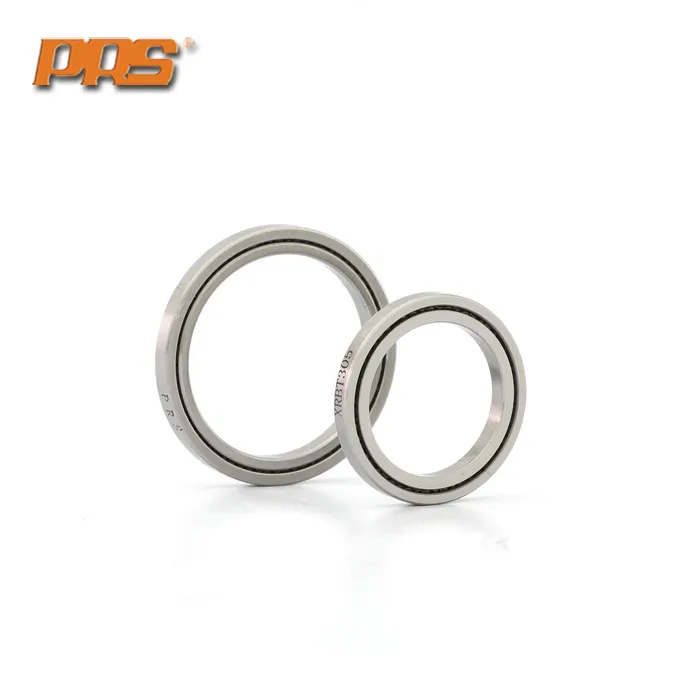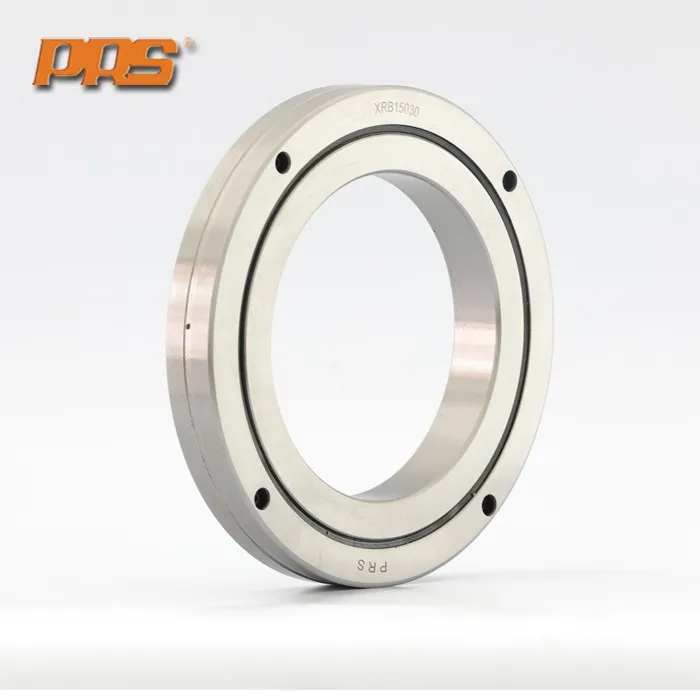What is the load capacity of crossed roller bearings?
Crossed roller bearings are precision bearings designed with cylindrical rollers arranged alternately at right angles within a V-shaped raceway. This unique structure enables them to support loads in all directions simultaneously, including radial, axial, and moment loads, while maintaining high rigidity and accuracy.
Crossed Roller Bearing Load Capacity

The load capacity of crossed roller bearings is determined by several factors:
Bearing Dimensions: Larger bearings (larger bore diameter, outer diameter, and width) generally have a higher load capacity due to more rolling elements and a larger contact area.
Roller Diameter and Length: The size and number of the cylindrical rollers significantly impact how much load the bearing can withstand.
Material and Hardness: The type of steel used (e.g., high-carbon chromium bearing steel) and its heat treatment, which determines its hardness, are crucial for fatigue life and load capacity.
Internal Design and Preload: The specific arrangement of rollers (e.g., alternating at 90 degrees), the raceway geometry, and the amount of internal preload applied during manufacturing all influence load distribution and capacity.
Application Conditions: Factors such as rotational speed, operating temperature, lubrication, and the presence of shock loads or vibrations can affect the actual permissible load in a real-world application.
Types of Loads:
Crossed roller bearings are particularly good at handling:
Radial Loads: Forces perpendicular to the bearing’s axis of rotation.
Axial Loads: Forces parallel to the bearing’s axis of rotation.
Moment Loads: Overturning forces that try to tilt the bearing.
Due to their unique design where rollers are crossed at 90 degrees to each other, a single crossed roller bearing can handle radial, axial, and moment loads simultaneously and with high precision. This often eliminates the need for two separate bearings (one for radial and one for axial) that would typically be used in traditional setups.

Typical Load Capacity Ranges:
It’s difficult to give a single “load capacity” number because it varies so widely by specific bearing model and manufacturer. However, for common industrial sizes, you might see:
Dynamic Load Rating (Cr): This is the radial load that 90% of a large group of seemingly identical bearings will endure for 1 million revolutions. It can range from a few kilonewtons (kN) for smaller bearings up to hundreds of kN for larger ones.
…
More detailed information on the load capacity of crossed roller bearings can be found at: https://www.prsbearings.com/a/news/crossed-roller-bearing-load-capacity.html


